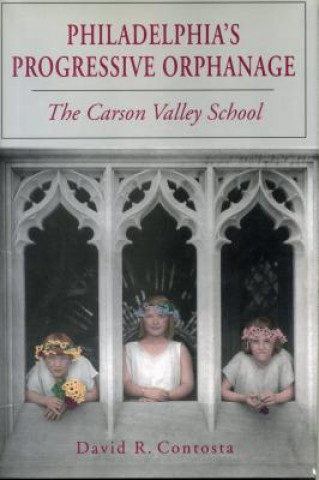
Kód: 04564075
Philadelphia's Progressive Orphanage
Autor David R. Contosta
"The story of Carson College is one of many stories that, taken together, answer the question, What happened to progressivism? . . . Contosta tells this story clearly and succinctly while avoiding the trap of excessive detail that ... celý popis
- Jazyk:
 Angličtina
Angličtina - Vazba: Brožovaná
- Počet stran: 272
Nakladatelství: Pennsylvania State University Press, 1997
- Více informací o knize

Mohlo by se vám také líbit
Darujte tuto knihu ještě dnes
- Objednejte knihu a zvolte Zaslat jako dárek.
- Obratem obdržíte darovací poukaz na knihu, který můžete ihned předat obdarovanému.
- Knihu zašleme na adresu obdarovaného, o nic se nestaráte.
Více informací o knize Philadelphia's Progressive Orphanage
Nákupem získáte 103 bodů
 Anotace knihy
Anotace knihy
"The story of Carson College is one of many stories that, taken together, answer the question, What happened to progressivism? . . . Contosta tells this story clearly and succinctly while avoiding the trap of excessive detail that characterizes many institutional histories. Based solidly on primary materials and interwoven with relevant secondary literature, Philadelphia's Progressive Orphanage is a model institutional study."-Journal of American History "The Carson Valley School has been an institutional embodiment of Progressivism. David Contosta is very effective in making the links between the larger Progressive ideology and the specifics of Carson. He has cast the story of this unique institution in a way that will maximize its interest for the history of education, social work, philanthropy, and urban institutions."-Robert Fishman, Rutgers University, Camden For more than seventy-five years, the Carson Valley School has served the needs of orphaned girls and other dependent children from Philadelphia and neighboring Pennsylvania counties. Its hundred-acre campus is remarkable for its rolling terrain, neo-medieval buildings, and design as a fantasy village. A legacy of the progressive education movement of the early decades of the twentieth century, the school was formally opened in 1918 as the Carson College for Orphan Girls. Its first president, Elsa Ueland, was a former settlement house worker who was a student of John Dewey and Maria Montessori, and her life story is closely intertwined with that of the school she oversaw for nearly half a century. The institution was originally endowed by the $5 million estate of Philadelphia trolley magnate Robert N. Carson, who had stipulated in his will that it could receive only white, parentless girls. Over the decades, Ueland and her successors were able to remove these restrictions, so that by the 1970s Carson Valley was admitting children regardless of race or gender, as well as neglected and dependent youths whose needs were every bit as pressing as those of orphans of earlier times. David Contosta's history of Carson Valley shows that it has long been a model of progressive education. Its faculty is dedicated to serving the individual needs of each child, preparing students to enter the workplace, and breaking down artificial barriers between school and the outside world. Drawing on Ueland's personal papers to communicate both her hopes for the Progressive era and her achievements during the early years of the school, Contosta tells how teachers and housemothers forged a unique collaboration that joined home and school in ways that other progressive educators could only dream of. He also notes the architectural significance of its enchanting facilities, which have played an integral part in the institution's treatment program. Philadelphia's Progressive Orphanage clearly shows not only how Carson Valley has been shaped by a multitude of social, cultural, and political forces, but also how many of the reforms of the Progressive era remain in place today. It establishes Carson's place in the history of education and child welfare and makes an important contribution to renewed debate about orphanages and dependent child care. David R. Contosta is Professor of History at Chestnut Hill College, Philadelphia. He is the author of many books, including Henry Adams and the American Experiment and Villanova University, 1842-1992: American-Catholic-Augustinian (Penn State, 1995).
 Parametry knihy
Parametry knihy
Zařazení knihy Knihy v angličtině Society & social sciences Social services & welfare, criminology Social welfare & social services
1033 Kč
- Plný název: Philadelphia's Progressive Orphanage
- Podnázev: The Carson Valley School
- Autor: David R. Contosta
- Jazyk:
 Angličtina
Angličtina - Vazba: Brožovaná
- Počet stran: 272
- EAN: 9780271027715
- ISBN: 0271027711
- ID: 04564075
- Nakladatelství: Pennsylvania State University Press
- Hmotnost: 426 g
- Rozměry: 229 × 152 × 16 mm
- Datum vydání: 15. September 1997
Oblíbené z jiného soudku
-

What Life Should Mean to You
433 Kč -

Denied a Mummy
403 Kč -

Internal Family Systems Therapy with Children
882 Kč -
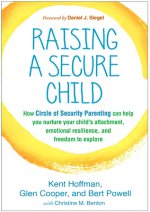
Raising a Secure Child
419 Kč -

Billionaire Who Wasn't
459 Kč -

Autobiography of George Muller
224 Kč -

Promise of a Pencil
276 Kč -

Active Listening
277 Kč -

Animal Assisted Therapy Activities to Motivate and Inspire
524 Kč -
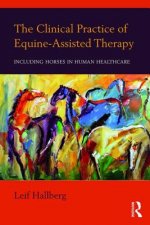
Clinical Practice of Equine-Assisted Therapy
1369 Kč -
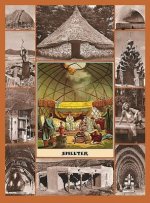
Shelter
616 Kč -
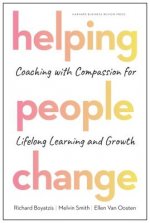
Helping People Change
728 Kč -

Counselling Skills for Working with Trauma
869 Kč -

From Coach to Awakener
615 Kč -
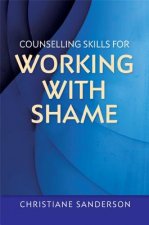
Counselling Skills for Working with Shame
869 Kč -

Using Stories to Build Bridges with Traumatized Children
697 Kč -
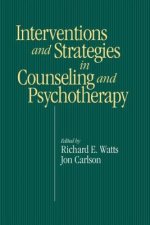
Intervention & Strategies in Counseling and Psychotherapy
1960 Kč -
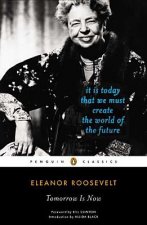
Tomorrow is Now
504 Kč -
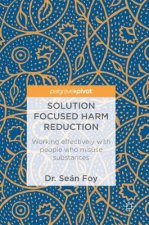
Solution Focused Harm Reduction
2189 Kč -

Investigating Child Exploitation and Pornography
2808 Kč -
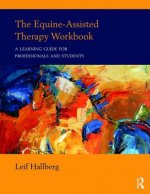
Equine-Assisted Therapy Workbook
1369 Kč -
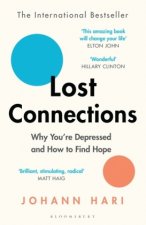
Lost Connections
378 Kč -
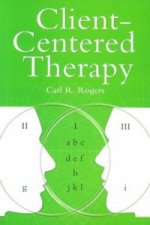
Client Centered Therapy (New Ed)
463 Kč -

English for Law Enforcement Student's Book Pack
1138 Kč -
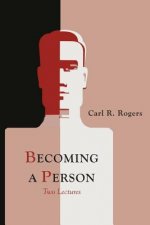
Becoming a Person
181 Kč -
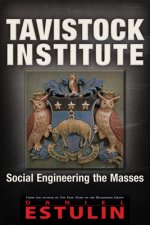
Tavistock Institute
518 Kč -

Personality Adaptations
605 Kč -

I Shall Not Hate
356 Kč -
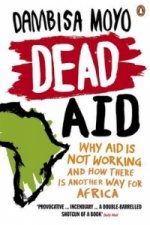
Dead Aid
323 Kč -
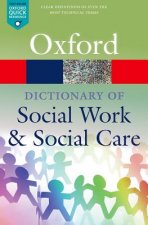
Dictionary of Social Work and Social Care
383 Kč -

Big Book of Blob Trees
1508 Kč -

Borderline Personality Disorder Demystified, Revised Edition
420 Kč -

Three Cups Of Tea
323 Kč -

Blob School
1264 Kč -

Conversations That Matter
986 Kč -

Therapeutic Journal Writing
965 Kč -

Smart but Scattered--and Stalled
482 Kč -

Solution Focused Narrative Therapy
1874 Kč -
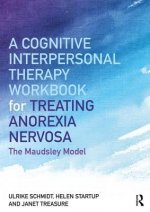
Cognitive-Interpersonal Therapy Workbook for Treating Anorexia Nervosa
882 Kč -
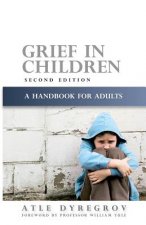
Grief in Children
594 Kč -

Enforcing Order - An Ethnography of Urban Policing
769 Kč -
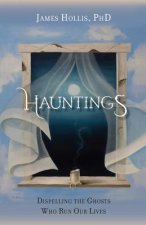
Hauntings - Dispelling the Ghosts Who Run Our Lives
659 Kč -

Creative Ways to Help Children Manage BIG Feelings
869 Kč -
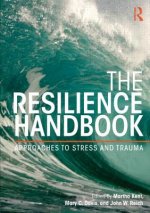
Resilience Handbook
2255 Kč -
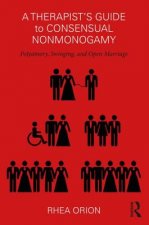
Therapist's Guide to Consensual Nonmonogamy
1360 Kč -
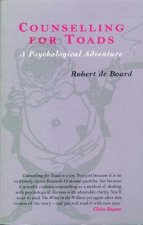
Counselling for Toads
882 Kč -

Enemies
410 Kč -

Ecotherapy in Practice
1464 Kč -

Marriage Clinic
1174 Kč
Osobní odběr Praha, Brno a 12903 dalších
Copyright ©2008-24 nejlevnejsi-knihy.cz Všechna práva vyhrazenaSoukromíCookies



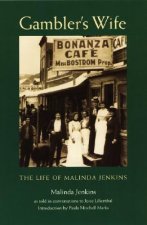

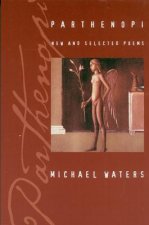
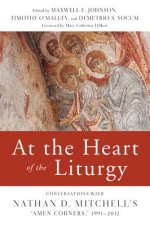

 Vrácení do měsíce
Vrácení do měsíce 571 999 099 (8-15.30h)
571 999 099 (8-15.30h)